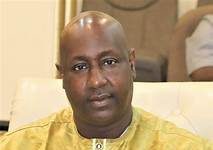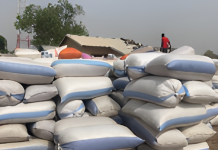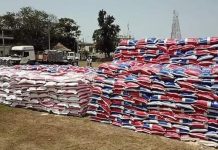Abdoulai G. Dibba
The Member for Serre Kunda, Hon. Halifa Sallah, has called on his colleagues to be conscious of thechallengesfacing the country.
He made this call at the National Assembly during his contribution to the adjournment debate on Tuesday 25 April 2017.
Hon. Sallah informed his colleagues that change has come at the most challenging period of our history and that their attention has been drawn to the fact that this is a youthful National Assembly. ‘‘This is an asset’’ Hon. Sallah asserted.
Hon Sallah told his colleagues that ‘‘an informed citizenry is a sovereign citizenry, a sovereign citizenry is a liberated citizenry and a liberated citizenry is the citizenry that can bring about development.’’
He argued that youthfulness without knowledge is like a tree without flower and that is bareness!
Halifa noted that the key to their salvation is knowledge and that he told the people when they were moving about during the presidential and National Assembly elections, that 296,000 children are in our lower Basic schools, 95,000 in our middle schools and 51,000 in our senior secondary schools.
He pointed out that over 400,000 children go out of the school system every 12 years looking for something gainful and those who travel outside are now being deported.
He said he travelled with them and all what they kept on saying is “we need employment”.
With regard to ministers’ attending parliamentary sessions, Halifa argued that some people said ministers should attend adjournment debates. However he said according to section 18 of the standing orders, they as National Assembly Members have every right to pose five questions to every minister that they wish to answer their questions. “So they must come here to answer our questions” he said.
With regard to the unemployment rate of the country, the Serre Kunda NAM noted that section 44 of the labour Act requires the commission of labour to maintain an employment service score and they will be calling the minister to tell them what is happening on that score.
‘‘This is necessary precisely because the purpose of that employment service score is to match employment seekers with employment and to keep a register of those who are seeking employment,’’ Hon. Sallah posited.
With regard to the economy, Hon. Sallah informed his colleagues that 20% of the GDP comes from Agriculture, 15% from industrial production and 65% from services. He then asked his colleagues what they are doing to build the Agricultural base of the country.
He asked whether we will be able to produce enough by providing fertilizer, seeds and farm implements to farmers. He noted that these issues are programmes which need to be initiated but that they are questions of policy.
‘‘They are questions of policy precisely because the issue of employment, the provision of social amenities like water, electricity and infrastructural development cannot be addressed without building the productive base of the economy,’’ Hon. Sallah stated.
Hon. Sallah further informed his colleagues that it is important for them to understand that to provide employment; “we must process our groundnuts into oil, our fish into fish products, our milk into milk products, our fruits into drinks and our vegetables into other products”.
He argued that it is impossible for the provision of electricity, water, infrastructure etc. to come from taxation.
‘‘Currently’’ he said, ‘‘the debt of the country is about 102% of GDP and that GDP is 47 billion Dalasi’’. Hon. Sallah went further to say that if one looks at this year’s budget; one will discover that it has provided 14.3 billion in revenue and 19 billion in expenditure leaving a deficit of 4.7 billion.
“We are running a deficit of 4.7 billion Dalasi and people are talking about increasing income, where is it going to come from because the international community will not accept that deficit to rise and be funded by domestic borrowing,” Hon. Sallah asserted.
Hon. Sallah told his colleagues that they are dealing with a crisis and they should be conscious of that.
To conclude Hon. Sallah said to address the challenges stated above, they must add value to their produces and in so doing they will expand the service sector thereby expand the productive sector.





















